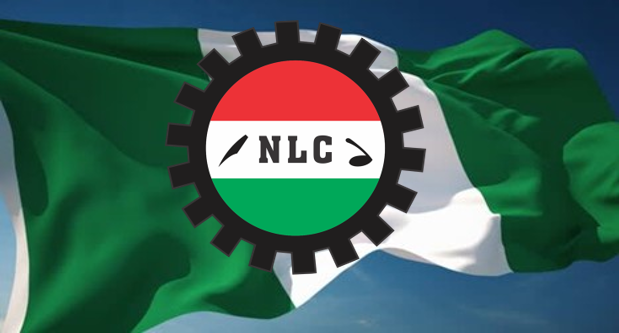A nationwide strike by the Nigerian Labour Congress (NLC) and its counterpart, Trade Union Congress (TUC) has commenced on Monday as the intervention by the National Assembly (NASS) failed to resolve the impasse.
Also read; Full lyrics of Nigeria’s New National Anthem
A meeting which presided over by the Senate President Godswill Akpabio and the Speaker of the House of Representatives, Hon Tajudeen Abbas, attended by NLC President Joe Ajaero, and his TUC counterpart, Festus Osifo on Sunday night ended in deadlock after several hours.
The Leadership of both the Senate and the House of Representatives initiated the meeting which started at about 5.30pm on Sunday at the National Assembly complex to avert the impending strike.
On its X (formerly Twitter) handle, the NLC stated “Victory comes by struggle, a living wage is possible” and posted a picture message saying “We are on Strike.”
Victory comes by Struggle, A Living Wage is Possible. pic.twitter.com/GpO4wroMqV
— Nigeria Labour Congress HQ (@NLCHeadquarters) June 3, 2024
Stating after the failed meeting, the President, Trade Union Congress, TUC, Festus Osifo said that they don’t have the powers to suspend the strike against the backdrop that there are organs that they must report to before a final decision could be taken.
In his statement “There was an appeal from the Senate President to call off the strike. On our part, we said we cannot sit here and just call off the strike because we need to report to our people. We will take all their pleas to our organs. For now, we don’t have the powers to call off the strike.”
The organised Labour had on Friday declared an indefinite nationwide strike due to the Federal Government’s refusal to increase its new minimum wage offer above ₦60,000.00.
NLC President, Joe Ajaero announced that the strike followed failed negotiations between the government and organised labour, and its refusal to reverse the withdrawal of the power sector subsidy and increase in electricity tariff.
The unions had earlier given the May 31, 2024 deadline for the conclusion of new minimum wage negotiations.
In the course of the negotiations, Government raised its minimum wage offer from ₦57,000 to ₦60,000 while the labour unions reduced their demand to ₦494,000 from ₦497,000 proposed earlier. The labour leaders initially demanded ₦615,000.
But the negotiations deadlocked as the government maintained its offer of ₦60,000, leading to the declaration of a nationwide indefinite strike.
Minister of State for Labour, Onyejeocha, argued that the government and the Organized Private Sector could not afford the ₦494,000 demanded by the congress.
In her statement, she argued that “we are talking about the lowest level, minimum wage, that’s minimum level one. How will the Organized Private Sector pay? You’re talking about salary.
“Yes, things are hard, it’s hurting everybody, but the point is that is our economy buoyant? There’s so much inflation. So, if you pay somebody at level one ₦494,000, you’re talking about an increase of 1,547 per cent.
“We understand that, yes things are hard, let us increase the minimum wage by 100 percent from ₦30,000 to ₦60,000, and then you are telling us that people are already being paid over ₦70,000. I say from where, how?’’
She went further to say, “the President has been very compassionate. Check all the palliatives, all the interventions he’s been doing, just to make sure that things are going well. I have not seen any government in Nigeria go out of its way to do the kind of interventions that he’s doing, both in the education sector, health sector, social welfare and yet you’re not looking at that.’’
She further stated that, “There are other things that the government needs money to do. You understand? If the government uses all its money to pay minimum wage for that percentage of people, then what happens to the rest?
The Attorney-General of the Federation and Minister of Justice, Lateef Fagbemi, (SAN), has faulted the organised labour over the nationwide strike it is starting today (Monday).
Fagbemi, in a letter to the Nigeria Labour Congress and the Trade Union Congress leaders, dated June 1, 2024, insisted that the strike over the new minimum was a violation of a subsisting National Industrial Court order restraining the unions from grounding the nation through the strike action.
Meanwhile, the affiliates of the NLC and TUC have begun mobilizing their members nationwide in compliance of the said strike.
Engineer, Entrepreneur, forex trader and Analyst
